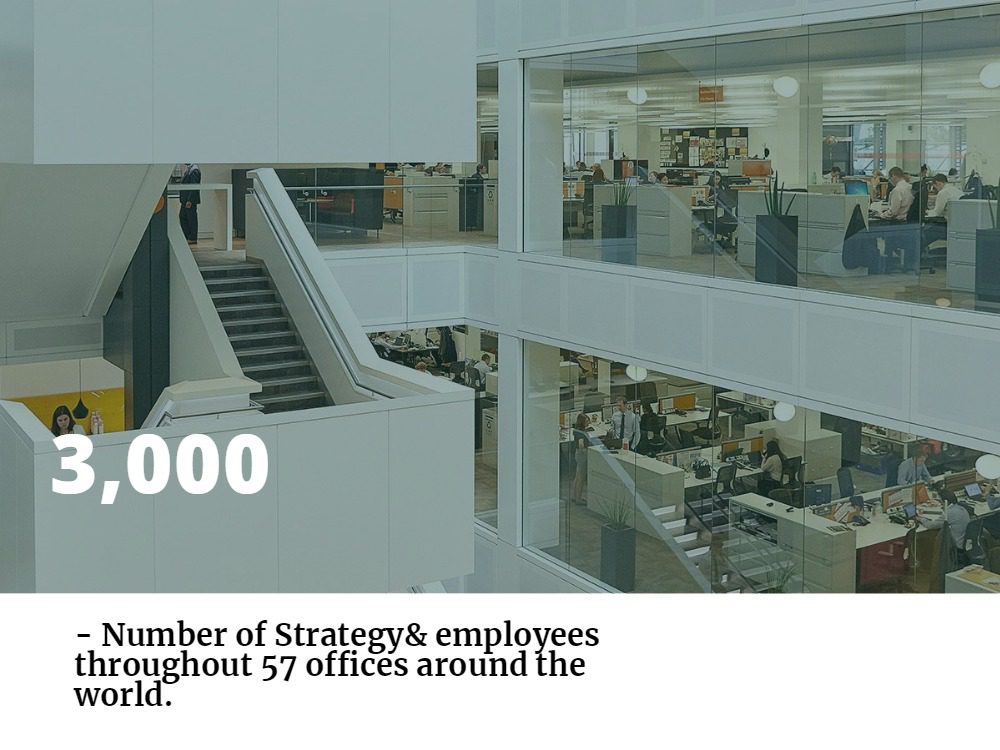Boston News: Northeastern Explores Trump Tweets, MIT Offers FinTech Advice and More

Let’s explore some of the most interesting stories that have emerged from Boston metro business schools this week.
Can A Trump Tweet Dramatically Sway A Company’s Value? – Northeastern’s D’Amore-McKim Blog
Will Clark, DMSB ’17, along with Northeastern University D’Amore-McKim School of Business finance professors David Myers and Jeffery Born, sought to understand the impact that President Trump’s tweets—which often directly address publicly traded companies like Ford, Toyota, Walmart, GM, and Boeing—had on their stock market value.
“Past presidents communicated through the media. This was the first time that a president was communicating directly with the public—with investors—about companies. We really weren’t sure what to expect from the data,” says Clark, who is now a credit analyst with Morgan Stanley.
The trio’s research found that Trump’s tweets, in fact, did have some impact on companies, often increasing trade volume within the first few hours and days after he references them on the social media platform. The research was revealed in the academic journal Algorithmic Finance.
“The team found that Trump’s tweets dramatically increased trading volume for the companies’ stocks in the first few days following a tweet. They also found that positive (or negative) tweets about companies increased (or decreased) the firms’ stock prices by a modest amount—just 1 percent. But the changes were only temporary: Within a few days, the firms’ trading volumes and stock prices returned to pre-tweet levels.”
The lasting effect, however, was found to be longing. The trio notes that the most active traders, which they refer to as “noise traders,” were very reactive to Trump’s words, with trading tapering off after only a few days.

“They’re regular people and under-informed investors who want to get in and out and make a buck without thinking too long and hard about it,” Born notes about the financial impact of Trump tweets.
You can read more about the financial research on the Trump tweets from D’Amore-McKim here.
3 Lessons To Keep In Mind When Starting A FinTech Venture – MIT Sloan Newsroom
MIT Sloan School of Management MBA alum Sophia Lin, ’12, and her partner Andrew Kelley of the FinTech startup Keel, which connects “rookie investors with more seasoned ones,” shares some hard-won lessons in an op-ed for the Sloan blog. First of all: beware of hidden costs specific to FinTech. “
“Starting costs are higher than other industries because of data, infrastructure, and security requirements,” Lin said. “Data is expensive, which stops a lot of early stage startups from entering this field. But you need data to build your product.”
Read all of Lin’s words of wisdom here.
More CEOs Have Begun To Take Social Responsibility Seriously – HBR
CEOs from Facebook’s Mark Zuckerberg to Blackrock’s Larry Fink have begun to take very public stands to address the long-term impacts their products have had and continue to have on communities and the environment.
“We are witnessing a big, transitional moment—akin to the transition from analog to digital, or the realization that globalization is a really big deal. Companies are beginning to realize that paying attention to the longer term, to the perceptions of their company, and to the social consequences of their products is good business.”
Harvard Business School John and Natty McArthur University Professor Rebecca M. Henderson also explains that there are distinct differences between the size of a company, which often contrasts with the social goals of the company. The larger the company, the more long-term the outlook, she explains. Unlike small companies, larger firms worry about quarter-to-quarter results less.
“Big firms can also internalize certain externalities. An externality is a cost from a transaction that doesn’t fall on the buyer or the seller. If I pollute the air to make a product I sell to you, the cost of that pollution is spread out across society, and isn’t incorporated in the price I charge you for the product. Externalities pose problems for markets, since neither buyer nor seller have any incentive to deal with the costs. But sometimes, for really large firms, things work differently.”
The unfortunate causality, she notes, is that we are often reliant on the largest companies to take the initiative for causes that may be considered part of the global good. If some companies among the Fortune 500 elect to, say, go carbon neutral within the next decade, that can have a profound impact on other competing companies. And if those initiatives are not as profitable, there is an even greater risk of other companies being reluctant to attempt similar efforts.
Read more about the growing CSR trend among CEOs here.
Harvard Black Business Leaders Series Celebrates Black History Month

To commemorate Black History Month, Harvard Business School presented a series of cases, courses, and podcasts highlighting influential black business leaders. Within its MBA curriculum, HBS has also been working to increase the representation of compelling African-American protagonists culled from a wide range of industries in the case studies at the heart of its distinctive case study method.
Senior Lecturer Steven Rogers (no not that one), who teaches the course “Black Business Leaders and Entrepreneurship,” was one of the catalysts for this initiative. Rogers uses his course as an opportunity to honor the unsung impact that many African-American business leaders have had on the way America does business. As part of the Black Business Leaders Series of podcasts, Rogers interviews living African-American leaders about the dizzying highs and devastating lows of doing business.
John Rogers Podcast
One such interview features Ariel Investments Founder, Chairman, and CEO John Rogers (no relation), whose financial management firm handles about $13.1 billion. Ariel currently has 90 employees and considers itself a miniature version of Fidelity. “John Rogers is one of America’s great entrepreneurs,” says Steven Rogers by way of introduction. “In the words of Warren Buffett, he is one of the greatest investors of our time.”
The podcast delves into John’s vocal criticism of diversity in Fortune 500 companies and how his comments got him in trouble with his board. It also discusses such topics as a severe lack of inclusion present in the financial management industry. It’s a problem that impacts the entire sector, from job creation to community health.
“When African-American–owned companies are allowed to prosper and grow, we see the creation of more jobs,” Steven Rogers explained in the podcast. “When people have jobs, they’re self-sufficient. When people are self-sufficient, they live in healthy communities. That’s exactly what happens when diversity and inclusion is actualized and people like John are given a chance to grow their companies.”
To listen to the full podcast visit the school website.
Black Business Leaders Series Highlights
Don’t miss these other great podcasts in the HBS Black Business Leaders series:
- A discussion of Ebony Magazine, which for more than seven decades has chronicled the most important African-American issues and interests of the time.
- An interview with Senior Lecturer Henry Q. McGee on the topic of “The Black List” in Hollywood.
- An in-depth look at the legacy of Maggie Lena Walker and the Independent Order of St. Luke.
To access the complete Black Business Leaders Series, visit the HBS Newsroom.
This article has been edited and republished with permissions from our sister site, Clear Admit.
Top MBA Recruiters: Finding Your MBA Career at PwC Firm Strategy&

Navigating job applications and interviews after all the hard work of earning your MBA can be tiresome. After devoting a year or more of your time to gaining the skills of a top business professional, shouldn’t future companies be knocking down your door?
It might not be that easy, but there are certainly a number of companies currently seeking the best and the brightest up-and-coming business leaders, who acknowledge the kind of skills an MBA can contribute to their team. Among them is Strategy&, one of the top recruiters of MBA students at business schools throughout the world.
For MBA graduates looking for careers in the consulting industry, Strategy& could be the perfect opportunity to break into the field and develop critical skills in strategy and consulting. And as an MBA graduate with a wealth of knowledge within the industry, companies like Strategy& are probably also looking for you.
About Strategy&
Strategy& was established more than 100 years ago by Edwin G. Booz, eventually being known for most of its life as Booz & Company. In 2014, the firm was acquired by PricewaterhouseCoopers (PwC), when it was renamed to Strategy&. The firm is headquartered in New York City, with more than 57 offices throughout the world. Today, the company features roughly 3,000 employees and more more than $1.3 billion in revenue.
Strategy& functions currently as the strategy consulting team for PwC, offering strategic solutions in an uneven business climate, helping companies to transform, invest in growth, and stay in tune with business trends even through rapidly changing times.

Why MBAs Love Strategy&
Strategy& is an active recruiter from business schools around the world, including top programs like Harvard Business School, NYU Stern, and INSEAD, among many others. The company is also supportive of staff who have not yet earned an MBA but hope to advance their business education. Strategy& even offers junior staff the chance to apply for full MBA sponsorship, and provides flexible work opportunities so students can pursue a degree while still maintaining their career.
The Strategy& consulting experience is shaped in a way that relies on mentorship, with a 1:6 ratio of partners to junior consultants. For MBA students—who have already demonstrated an interest in investing in their growth and education in the field—this type of setting means that class is always in session.
Life at Strategy&
New consultants at Strategy& can expect a clear and structured path laid out at the start of their career, with rapid career progression possible. New associates will advance towards roles as partners, typically spending two to three years at each level along the way.
While undergraduates would begin in associate roles, those with MBA degrees can jump right in at the senior associate level. Senior associates have the opportunity to develop their skills by working closely alongside clients to resolve complex issues and guide clients and their companies towards success. From there, MBAs could move upward into a manager role, then director, and finally partner.
The development of strong mentor relationships is seen as crucial at Strategy&. Mentors will provide a constant source of support for new associates, offering guidance as they move upwards through the company, choosing projects they are passionate about and forming strong professional networks. Mentors will also provide real-time feedback, helping pave the way for a successful career.
Landing a Job at Strategy&
Strategy& is an active recruiter of MBA programs throughout the country, where they may host events on campus and offer direct information to students on applying for positions at the company. Students from any program, even if the school does not actively recruit there, are able to apply directly for their internship and job openings through their website. Jobs are available at a number of the firm’s locations throughout the country and around the globe.
Summer internship opportunities are a great way for students to get their foot in the door at Strategy&, and may end up leading to full time employment. This was the case for Bryan, now a director at the company and based out of Chicago. Bryan interned for the company during the summer while earning his MBA at the University of Chicago Booth School of Business. He completed his MBA in 2011, joined Strategy& as a full-time colleague, and is now a key member of the Technology Strategy team.
“I had the opportunity to do an internship with the firm between my first and second year at business school, and I came away impressed with the caliber and character of the people at the firm,” Bryan said of his experience with Strategy&. “In only nine weeks, the camaraderie and professional bonds that I was able to develop with my teammates, fellow interns and leaders at the firm was special.”
Harvard Helps Business Students Take Startups to NYC

Launching a startup isn’t easy, but Harvard Business School is working to change that for its alumni with the start of its new RISE program. Put together by Harvard’s Rock Center for Entrepreneurship, the RISE program will help HBS graduates accelerate the growth of their NYC startups.
With the goal of seeing more of its alumni entrepreneurs make it big, the new HBS RISE program will offer a range of benefits and support. Planned programming will help new enterprises with the many challenges that accompany startup life—from developing culture to hiring employees, building leadership skills, managing boards, raising funds, optimizing sales, and more. The eventual goal is to help small ventures successful scale from just a handful of employees to hundreds.
In order to participate in the program, HBS alumni have to own a company that is revenue generating and has already raised $1 million in capital. These qualifications were set to help ensure that participating companies have the best chance for successful scaling.
YOU MAY ALSO LIKE: More Harvard MBAs Are Turning to Politics
According to Professor Thomas Eisenmann, faculty chair of the Rock Center, the RISE program is all about helping enterprises scale individually. “In the RISE program, HBS faculty members, alongside seasoned entrepreneurs, will convey best practices and frameworks to help entrepreneurs address startup challenges that can make or break a company,” he explained in a news release. “The program has been developed to leverage extensive faculty research on what it takes to successfully scale an enterprise.”
HBS alumni chosen for the program can expect to learn about scaling their businesses from both faculty and peers. RISE will be broken down into sessions, each of which will have curated content developed by other successful alumni entrepreneurs and investors. At the end of each session, a roundtable discussion will allow for candid conversation between peers where founders can discuss challenges and offer advice.
Nine HBS alumni founders have already been accepted into the first RISE cohort, including:
This article has been edited and republished with permissions from our sister site, Clear Admit.
Boston News: MIT Tackles Universal Basic Income, Negative Reviews, and More

Let’s visit some of the biggest news coming out of Boston business schools this week.
12-Year Study Looks at Effects of Universal Basic Income – MIT Sloan Newsroom
MIT Sloan School of Management associate professor Tavneet Suri, alongside nonprofit company GiveDirectly, will conduct a lengthy, 12-year study into the effects of the constant hot-button issue of universal basic income. UBI is a basic concept that an acting government will assist its citizens by distributing a recurring stipend, supplementing the loss of jobs to things like automation.
“Suri is conducting the research along with MIT professor Abhijit Banerjee, Princeton professor Alan Krueger, University of California San Diego professor Paul Niehaus, and GiveDirectly president Michael Faye. Overall, GiveDirectly expects to transfer $25 million to more than 21,000 people (not including the control group), 5,000 of whom will receive cash transfers for 12 years. The money comes with no strings attached.”
Read more about the extensive MIT UBI study here.
The Costs and Benefits to Responding to Negative Online Reviews – BU.edu
When BU Questrom marketing professor Georgios Zervas and USC’s Davide Proserpio looked into thousands of TripAdvisor reviews, they found a fairly surprising turn: hotel managers that actively engaged with reviewers, positive or negative, may have actually helped their overall ratings. Zervas notes that it actually diminished the number of negative reviews because users were more wary when they saw hotel staff members participating in a conversation.
However, the two found that the reversal cause of this interaction was that negative reviews who did leave reviews, after engaging with the hotel staff, tended to leave longer reviews—which often made the negative details much more elaborated and personal. Zervas notes this is still probably good overall, saying, “The remaining negative reviews are detailed and contain constructive feedback that [hotel management] can act upon.”

BU professor Georgios Zervas and USC’s Davide Proserpio found uniquely beneficial ways companies can utilize review sites like TripAdvisor.
Read more about BU Questrom’s study on TripAdvisor here.
What Could Amazon’s Approach to Health Care Look Like? – HBR
The Amazon, Berkshire Hathaway, and JP Morgan Chase venture to disrupt the healthcare industry led to a minor panic for other healthcare shareholders, but its potential impact is still fairly uncertain. HBR writer Robert S. Huckman and admitted Amazon shareholder recently explored the potential positive impacts, including simplifying a very complex U.S. healthcare prescription service industry, “simplifying data capture,” and the repeated effort from Amazon to improve its services to regular customers.
On the latter reason, Huckman explains, “Amazon has an internal challenge — managing the health and health spending of its employees — that is shared by many other companies. Yet Amazon likely does not have a full “solution” in mind just yet. Rather, it has ideas and hypotheses to test. By creating a space in which those ideas can be tested, Amazon may be able to play a key role in allocating resources to solutions that show themselves, over time, to be promising.”
You can read more about Huckman’s outlook for Amazon healthcare here.
Stay up to date with all news from the Boston metro, as well as our MetroMBA Boston twitter feed, today.
What are the Greenest Business Schools in the U.S.?

Earlier this month, the Global Hub at Northwestern’s Kellogg School of Management earned LEED (Leadership in Energy and Environmental Design) Platinum certification, becoming only the second building on the Northwestern campus to earn the U.S. Green Building Council’s highest green building rating.
The 415,000-square-foot Global Hub, which opened in March 2017, was designed with a low carbon footprint in mind. It is the largest of Northwestern’s 12 LEED-certified buildings. “Achieving LEED Platinum certification for the Global Hub underscores Kellogg’s strong commitment to sustainability,” Kellogg Chief Operating Officer William Garrett said in a press release. “A world-class facility demands world-class practices, and the Global Hub checks all of the boxes: It minimizes its carbon footprint, is comfortable and healthy for its occupants, and encourages collaboration and a sense of community.”
The building is a marvel of modern architecture and design. It taps into geothermal energy systems underneath the ground for efficient heating and cooling and uses nearly 6,000 fixtures of LED lighting to reduce energy use. The building also has an advanced ventilation system to circulate fresh ar and uses daylight sensors to minimize the need for artificial lighting.
Overall, the Global Hub earned 85 out of a possible 110 points on the LEED scale, including:
- 26 out of 35 points for energy and atmosphere,
- 7 out of 14 points for materials and resources,
- 8 out of 10 points for water efficiency,
- 23 out of 26 points for location,
- 11 out of 15 points for indoor environmental quality, and
- 10 out of 10 points for the design process and regional priority categories.
“We are proud to have successfully integrated best-in-class sustainability with a stunning architectural design, proving that excellence in design and sustainability are not mutually exclusive,” said Bonnie Humphrey, director of design for facilities.
Of course, Kellogg isn’t the only business school to embrace environmentally conscious building practices for its new facilities. It’s a practice we’re seeing across the board at various top schools.
For example, Harvard Business School has a Sustainability Plan that was adopted in October 2014 to reduce greenhouse gases, improve energy efficiency, reduce water usage and waste, and more. Already, the university has cut its greenhouse gas emissions by 49 percent, its energy use by 33 percent, and its water use by four percent.
MIT Sloan School of Management’s newest building, the Joan and William A Porter 1967 Center for Management Education, also known as E62, was designed with energy efficiency in mind as well. Among its sustainable features are light-sensitive window shades, a green roof, and an irrigation system that minimizes water use by responding to changes in weather.
And not to be left out, UC Berkeley’s Haas School of Business designed its recently constructed Chou Hall to become the nation’s greenest academic building. In addition to LEED Platinum certification, Chou Hall was designed to attain WELL certification, an added accolade given to buildings that promote user health and well-being. Toward this goal, its design includes rainwater cisterns and 24,300 square feet of exterior windows in addition to efficient heating, cooling, and lighting systems.
